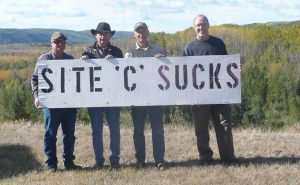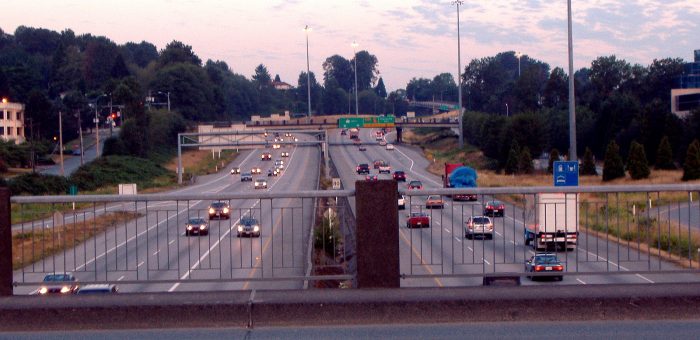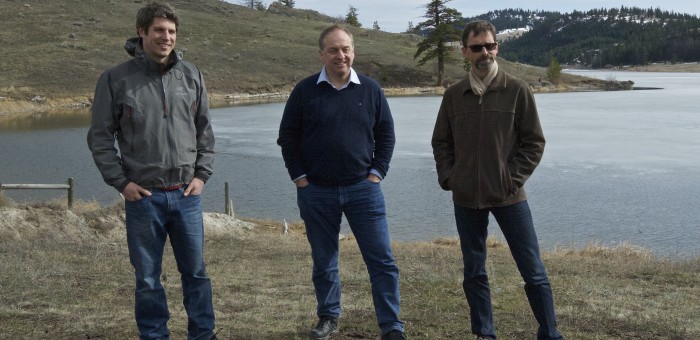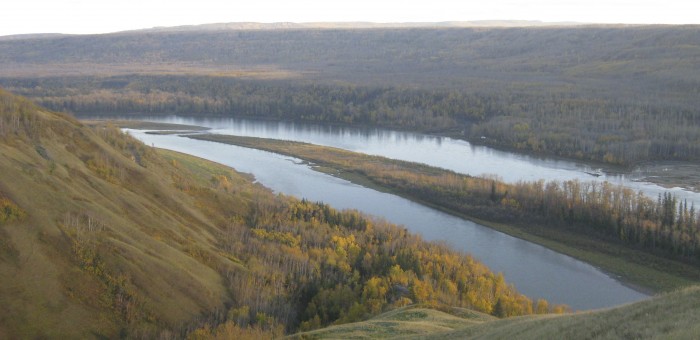Issues & Community Blog - Andrew Weaver: A Climate for Hope - Page 71
Ride-hailing committee finally gives British Columbians the debate they deserve
At the end of the three days of public hearings on setting up the regulatory regime to bring ridehailing to British Columbia, my office released the press release reproduced below.
Media Release
For immediate release
Weaver: Ride-hailing committee finally gives British Columbians the debate they deserve
January 10, 2018
VICTORIA, B.C. – Andrew Weaver, leader of the B.C. Green Party, released the following statement upon the conclusion of the all-party committee consultations on ride-hailing. The committee, the first in B.C. history to be struck as the result of a Private Member’s Bill, concluded three days of public consultations in Vancouver today.
“I am delighted that British Columbians have finally heard a open discussion on this issue from all three parties,” said Weaver.
“This all-party committee demonstrates how we can reform politics in this province to better deliver for our constituents. Open, transparent debate based on evidence is exactly how we should be crafting public policy.
“For far too long, ride-hailing has been treated like a political football while people wait for action. I have long held that it is unacceptable for Vancouver to be the largest city in North America without access to this service. We cannot expect to be innovators if we do not embrace innovation.
“Over the course of the last three days, we have heard from small communities like Enderby about how ride-hailing would help solve transportation issues for their residents. We’re heard from taxi drivers concerned that ongoing illegal ride-hailing has driven them from being able to work in cities like Richmond. We’ve heard from the taxi industry and labour advocates that they are concerned about the implications of regulating ride-hailing in this province. And we’ve heard from B.C. innovators pitching creative solutions.
“I am confident that my colleagues and I will now be able to produce a report that addresses these concerns while ensuring British Columbians have access to the consumer choices they want, and that innovation can flourish in our province. The B.C. Greens will continue to keep the pressure on government to bring ride-hailing to British Columbians this year.”
-30-
Media contact
Jillian Oliver, Press Secretary
+1 778-650-0597 | jillian.oliver@leg.bc.ca
British Columbia ends the grizzly bear hunt
Today the BC Government announced a moratorium on the hunting of Grizzly bears in British Columbia. As you can see from our media release reproduced below, we are delighted with the BC NDP announcement.
Media Release
B.C. Green caucus responds to the end of the grizzly bear hunt
For immediate release
December 18th, 2017
VICTORIA, B.C. – “After years of work on this file, my colleagues and I are absolutely overjoyed this decision has finally been made. The results of the government’s consultation were clear and government has listened – we couldn’t be more thrilled,” said Adam Olsen, MLA for Saanich North and the Islands and B.C. Green Party spokesperson for the Ministry of Forests, Lands, Natural Resource Operations and Rural Development.
“A focus on protecting grizzlies has been a constant throughout my time at the legislature, and I am proud to have been able to help advance this issue,” said Andrew Weaver, MLA for Oak Bay-Gordon Head and Leader of the B.C. Green Party.
“Andrew has been a strong advocate for the long term wellbeing of grizzlies since his election in 2013,” said MLA Olsen. “He tabled the Wildlife Amendment Act multiple times and stood as a lone voice in the legislature against the B.C. Liberals who actively supported grizzly trophy hunting and the B.C. NDP who would not take a position. This legislation was intended to give the BC Liberal government a feasible path forward to protecting Grizzly Bears.
“Now we have a very different political landscape in B.C. and our office shifted its efforts accordingly,” said MLA Olsen, who became lead on this file after the May election. “The minority government and a governing agreement signed by the B.C. NDP and B.C. Greens have allowed us to take a stronger position and we commend the government’s bold announcement today.
“Ending the grizzly hunt is a momentous accomplishment, but there is still work to be done to protect this species. If we fail to also consider habitat and food supply – especially with climate change further threatening essential salmon and huckleberry stocks – conflicts with humans, roadkill rates, or poaching incidents, we will fail to protect grizzlies in the long term.
“We hope that this announcement will be followed with a comprehensive ecosystem based approach to wildlife management because we cannot continue to perpetuate the slow, methodical extirpation of native species in BC. We will celebrate progress along the way and work to ensure species like grizzly bears and wild pacific salmon have the resilient ecosystems they need to thrive into the future.
“This breakthrough would not have happened without the efforts of many – thank you and congratulations to everyone involved.”
-30-
Media contact
Sarah Miller, Acting Press Secretary
+1 778-650-0597 | sarah.miller@leg.bc.ca
Responding to the decision concerning the KGHM Ajax Mining Project
Yesterday the BC Government announced that it had decided not to issue an environmental assessment certificate to the KGHM Ajax Mining Project. This is a welcome decision in light of the ongoing controversy that had emerged over the project.
I have previously toured the proposed site of the Ajax mine twice. The first time was with representatives of KGHM. The second time was with citizens who were concerned about the potential detrimental impacts of an open-pit mine so close to the city. Our two BC Greem candidates (pictured above) during the last provincial election (Dan Hines and Donovan Cavers) were outspoken opponents of the project. Donovan serves as a Councillor on the Kamloops City Council which has voted twice to oppose the mine.
Below I reproduce our press release that followed the government’s announcement.
Media Release
B.C. Green Caucus respond to Ajax mine decision
For immediate release
December 14, 2017
VICTORIA, B.C. – Today the B.C. Green Caucus responded to the news that the B.C. Government decided not to issue an environmental assessment certificate to the KGHM Ajax Mining Project.
“We are happy that government is following the recommendation of the EAO on this project,” said Sonia Furstenau, MLA for Cowichan Valley. “The consensus in the community was clear. City council has voted twice to oppose the mine. Given the magnitude of the adverse effects and the EAO’s recommendation not to issue a certificate, it would have been shocking for government to approve this project.”
“The EAO identified significant and cumulative adverse effects from this project, including on human health in the nearby communities, and on Indigenous heritage,” said Andrew Weaver, Leader of the B.C. Green Party and MLA for Oak Bay-Gordon Head.
“First Nations and the local community have been very engaged throughout this process, bringing many of the concerns to light. This was the only sound decision that government could have made based on the evidence provided,” said Adam Olsen, MLA for Saanich North & the Islands.
-30-
Media contact
Sarah Miller, Acting Press Secretary
+1 778-650-0597 | sarah.miller@leg.bc.ca
Extremely disheartening decision by BC NDP to proceed with fiscally reckless Site C project
Today the BC NDP announced that they would proceed with the construction of Site C. Their justification for moving forward is distracting, irrelevant and unacceptable. Ultimately, the BC NDP made a choice. They chose to eliminate the tolls on the Port Mann and Gold Ears bridges instead of cancelling Site C.
Back in August I pointed out how wrong it was to eliminate the tolls on these bridges. One of the key reasons was that the outstanding debt of $4.7 billion (Port Mann – $3.6 billion; Golden Ears – is $1.1 billion) would have to be moved from self-supporting debt to taxpayer-supported debt. Increasing taxpayer supported debt is worrying. The Province’s borrowing rates are largely determined by our credit rating, overall taxpayer supported debt load and the ratio of provincial revenue to provincial debt. Increasing this debt load risks the potential of downgrading our credit rating which in term would increase borrowing rates on the entire provincial debt. Back in August, the BC NDP simply announced that they would eliminate tolls without checking with credit rating agencies and without concern for the rising provincial debt. It turns out that there was room to increase debt by $4 billion without triggering a downgrade.
Yet today, they evoke concerns about increasing provincial debt as the reason why Site C must move forward. Had they not so crassly eliminated the tolls in a desperate attempt to grab votes, Site C could have been cancelled today.
What’s even worse is that today the BC NDP announced that the cost of Site C has now risen to $10.7 billion. Back in 2010 when Site C was advanced to stage 3 of the approval process, its price tag was somewhere between $5 billion and $6.6 billion. In 2011 the price tag increased to $7.9 billion. Two years later it was $8.3 billion and then this past year the price tag grew to $8.9 billion, accompanying a year-long delay in the construction schedule. The BCUC report published on November 1 concluded that the costs for Site C woulld be $10 billion. In fact, the B.C. Utilities Commission said this: “Given the nature of this type of project and what has occurred to date, total cost for the project may be in excess of $10 billion, and there are significant risks that could lead to further budget overruns.” The cost, they found, could end up being $12 billion — and this only two years into a nine-year project.
I have been pointing out the fiscal folly of building Site C since October 2013 and I’ve documented the many, many interventions I’ve made on the subject on this site. Our efforts culminated in us sending a letter to the BC Government last week outlining the case against Site C.
I know that there are many, many British Columbians who are devastated by today’s decision. What bothers me more than anything is that I know of quite a number of NDP MLAs who campaigned on stopping Site C. For example, the agriculture minister, Lana Popham, earlier this year told a Victoria audience:
“we would send this to the BCUC immediately, we would speed up the BCUC process, make it sixty days, and we would have that decision. There is no way that this project would pass.”
“in my view, we’re nine seats away from being able to stop Site C.
 Michelle Mungall, the Minister for Energy, Mines and Petroleum Resources told a group of Site C protesters that her government would stop Site C and implement their Power BC plan instead. John Horgan, our premier proudly held up a “Site C sucks” sign when he visited the Peace Valley prior to the last election.
Michelle Mungall, the Minister for Energy, Mines and Petroleum Resources told a group of Site C protesters that her government would stop Site C and implement their Power BC plan instead. John Horgan, our premier proudly held up a “Site C sucks” sign when he visited the Peace Valley prior to the last election.
When in opposition, George Heyman (now the minister of environment) was noted as saying “the dam project is wrong on every count because of its negative impact on agriculture, the environment, First Nations, clean energy commitments, economics, and the promise of jobs”. Many other NDP MLAs have spoken out against Site C or attended the annual Paddle for the Peace in celebration of the beautiful Peace Valley and in opposition to Site C.
Below I reproduce the press release we issued following the BC NDP announcement.
Media Release
Andrew Weaver responds to Government’s decision to continue with Site C
For immediate release
December 11th, 2017
VICTORIA, B.C. – Today Andrew Weaver responded to the NDP government’s decision to proceed with the construction of Site C.
“Our caucus is extremely disheartened by this decision. It is fiscally reckless to continue with Site C and my colleagues and I did everything we could to make this clear to the government.
“This government promised to be better than the B.C. Liberals. On this issue, the NDP government’s approach has turned out to be no different whatsoever.
“Since the beginning I have been concerned this would end up being a political decision. Today’s announcement reflects a sad reality for B.C., and British Columbians deserve better. They deserve a vision grounded in bold ideas that will enable our province to be a leader in the 21st century economy, not more empty campaign promises and political calculation.
“The government’s argument that cancelling Site C is too risky due to debt is incredibly cynical. This is a question of priorities. They had no problem adding billions onto the public debt to cancel the tolls on the Port Mann and Golden Ears bridges, transferring those costs to people outside of the Lower Mainland to pick up votes in a couple of swing ridings.
“Today, Site C is no longer simply a B.C. Liberal boondoggle – it has now become the B.C. NDP’s project. They are accountable to British Columbians for the impact this project will have on our future.
“We have seen what is happening to ratepayers in Newfoundland because of Muskrat Falls, a similar project, where rates are set to almost double. I am deeply concerned that similar impacts are now in store for B.C. ratepayers.
“The lost economic opportunities from continuing with Site C are profound. Our caucus has met with dozens of local governments, First Nations and B.C. companies with viable alternative energy projects. As countries across the world embrace small scale distributed renewable energy, this decision keeps B.C. locked in the past and risks foregoing enormous opportunities.”
-30-
Media contact
Sarah Miller, Acting Press Secretary
+1 778-650-0597 | sarah.miller@leg.bc.ca
Making the case for cancelling Site C in an open letter to government
Over the last few weeks Sonia Furstenau, Adam Olsen and I have tried to provide as much evidence as possible to make the case for cancelling the fiscally-reckless Site C megaproject. In fact, since I first raised the fiscal folly of moving forward with Site C in 2013, the case has become much, much stronger culminating in the British Columbia Utilities Commission report released on November 1, 2017.
In question period I’ve contrasted the escalating costs of Site C to the diminishing costs of renewables and noted the parallels with the controversial Muskrat Falls megaproject in Newfoundland and Labrador. I’ve pointed out that Site C was approved as a ratepayer funded subsidy to a non existent LNG industry. I’ve asked why the Columbia River Entitlement and distributed renewable projects have not been explored. And my BC Green colleagues have asked many more questions as well.
With the rising of the legislature last Thursday and ahead of an imminent decision regarding the fate of Site C, my caucus colleagues and I felt it was important to summarize our case against the project in an open letter that we sent to Premier Horgan. Below I reproduce a text of that letter.
Text of Open Letter
December 1, 2017
Premier John Horgan
Office of the Premier
Parliament Buildings, B.C. Legislature
Victoria, B.C.
V8V 1X4
cc: Hon. Michelle Mungall
Minister of Energy, Mines and Petroleum Resources
Dear Premier Horgan,
As we near cabinet’s decision on Site C, we write to you today to urge you to stop construction of the Site C dam.
Our Confidence and Supply Agreement committed government to sending Site C to the BC Utilities Commission (BCUC), BC’s independent regulatory agency, for an independent review of the project. In undertaking this review, the BCUC marshalled significant evidence and undertook an analysis of the implications of pursuing completion, suspension, and termination scenarios; the implications for ratepayers of different scenarios; and the potential for a portfolio of alternative sources of energy to meet demand.
The resulting report was comprehensive and provided a strong, evidence-based rationale for cancelling Site C. This rationale is founded in a number of key findings presented in the report, including:
- Site C is already over budget, and is beset by considerable risks of further costly overruns and delays;
- An alternative portfolio can meet future demand requirements, at the same or lower prices than Site C.
The BC Green Caucus believes that the findings of the report more than make the case that the best course of action for government is to cancel the project, remediate the land and begin the work of developing a 21st century energy system based on options presented in the alternative portfolio.
This argument is laid out in greater detail below.
Costs and risks of Site C
The estimated cost of Site C has escalated throughout its lifespan. Just last month, when the river diversion deadline was missed, the cost increased again from $8.3 to $8.9 billion, accompanying a year-long delay to the construction schedule.
It was therefore unsurprising to see the BCUC Panel determine that Site C will be behind schedule and substantially over budget. In the BCUC Panel’s words, “given the nature of this type of project and what has occurred to date, total costs for the project may be in excess of $10 billion and there are significant risks that could lead to further budget overruns”. The Panel found that these remaining risks include unresolved tension cracks and disputes with contractors. As such, the Panel found that it is unlikely that Site C will be completed on schedule by 2024, and even that construction costs could escalate even further beyond $10 billion.
This cost escalation is significant, and will have substantial impacts on British Columbia ratepayers. Given that we are only 2 years into what is supposed to be a 9-year construction project, we are gravely concerned about the impact on British Columbians of further expected delays and cost overruns.
As cabinet makes its decision, we hope they will also heed the lessons learned from another large-scale dam under construction, Muskrat Falls, in Newfoundland and Labrador. When the Muskrat Falls Project was sanctioned, it was estimated to cost $6.2 billion plus financing. The costs have since ballooned to more than $12 billion. The impact of this cost increase on rates in Newfoundland is profound. Nalcor Hydro now estimates that costs from the Muskrat Falls dam will result in rates almost doubling.
The lessons from this project are significant and relevant. Just last week the Newfoundland and Labrador government initiated a public inquiry into what happened with Muskrat Falls. Richard LeBlanc, the provincial Supreme Court judge leading the independent inquiry, has said “while we cannot undo the past we can learn from it”. While it may have been too late for their government to cancel their project, it is not too late for BC. We hope this government heeds his words and chooses a different path.
The potential of alternatives to meet demand
As part of its review, the BCUC was also mandated to analyze the ability of an alternative portfolio of commercially feasible projects and demand-side initiatives to provide similar energy benefits to Site C, including their potential to meet demand and their costs to ratepayers.
The Panel found that not only could an alternative portfolio of conservation, wind energy, and geothermal energy meet demand and provide similar benefits to ratepayers as Site C, but that it could do so with an equal or lower unit energy cost.
In addition to recognizing the current viability of alternative energy in BC, the Panel found that disruptive trends in technology pose one of the most significant risks to continuing with Site C. Evidence from around the world substantiates the Panel’s warning about technological trends. Prices for wind, solar, and
geothermal energy have plummeted year by year. The pace and scope of technological advance have exceeded even the most optimistic predictions.
Instead of locking ourselves into the path of the Site C Dam, we should seize this opportunity to build clean, distributed power that puts us on the cutting edge of innovation, and provides jobs and benefits to local communities.
In addition, though beyond the scope of the BCUC review, it is critically important that government also consider the impacts that this project has on First Nations, particularly in light of our collective commitment to implementing UNDRIP. Government must also consider the project’s impact on the environment of the Peace River valley. Through pursuing an alternative energy portfolio instead of Site C, BC can partner with First Nations, industry and local communities to build clean, distributed power across BC. These alternatives will employ more people than Site C and provide local jobs and benefits to local communities.
In the face of these developments, it would be irresponsible for government to continue down the path of Site C. We do not require Site C to meet our future energy needs – alternative sources of energy are more than able to meet demand, and they will enable us to adapt to changing needs, as they provide flexible sources of energy. In contrast, Site C locks us into an energy future that could impose significant burdens on future ratepayers, and we would be forced to sell any surplus power at a loss.
Final considerations
Laid out in front of this government is a choice. The previous government chose to forgo evidence and due diligence, and pushed forward irresponsibly with a project that it is clear should never have been started. What the BCUC report tells us is that it is not too late to correct this mistake.
However, the choice facing your government is not simply about which option will save ratepayers the most money. It’s a choice about what type of province we want to build. All around the world jurisdictions are embracing a modern, 21st century approach to energy policy. Pursuing this future would see the creation of a distributed, integrated power grid where the economic and employment benefits are shared by communities throughout the province.
Site C puts this future further out of reach, doubling down on the energy projects of the last century and undermining our ability to embrace the future.
We hope, as cabinet considers this decision, that they properly weigh this information contained within the BCUC report. Your government made the right decision in agreeing to commission an independent review before we crossed the point of no return. You need now to be guided by the evidence that this report puts forward.
This government has an opportunity to undo the mistakes of the last administration and chart a new, modern path for energy policy in BC. We hope you will seize this opportunity.
Sincerely,
Andrew Weaver
Leader, B.C. Green Party
MLA, Oak Bay-Gordon head
Sonia Furstenau
MLA, Cowichan Valley
Adam Olsen
MLA, Saanich North & the Islands
The Letter
Media Release
B.C. Greens make the case for cancelling Site C in open letter to government
For immediate release
December 1, 2017
VICTORIA, B.C. – B.C. Green MLAs Andrew Weaver, Sonia Furstenau and Adam Olsen sent an open letter today to Premier Horgan and Minister of Energy, Mines and Petroleum Resources Michelle Mungall making the case for cancelling Site C.
The B.C. Greens have been opposed to Site C since costs begun to escalate well past its initial budget, while the global cost of alternative energy has continued to fall.
The letter is attached.
-30-
Media contact
Sarah Miller, Acting Press Secretary
+1 778-650-0597 | sarah.miller@leg.bc.ca







